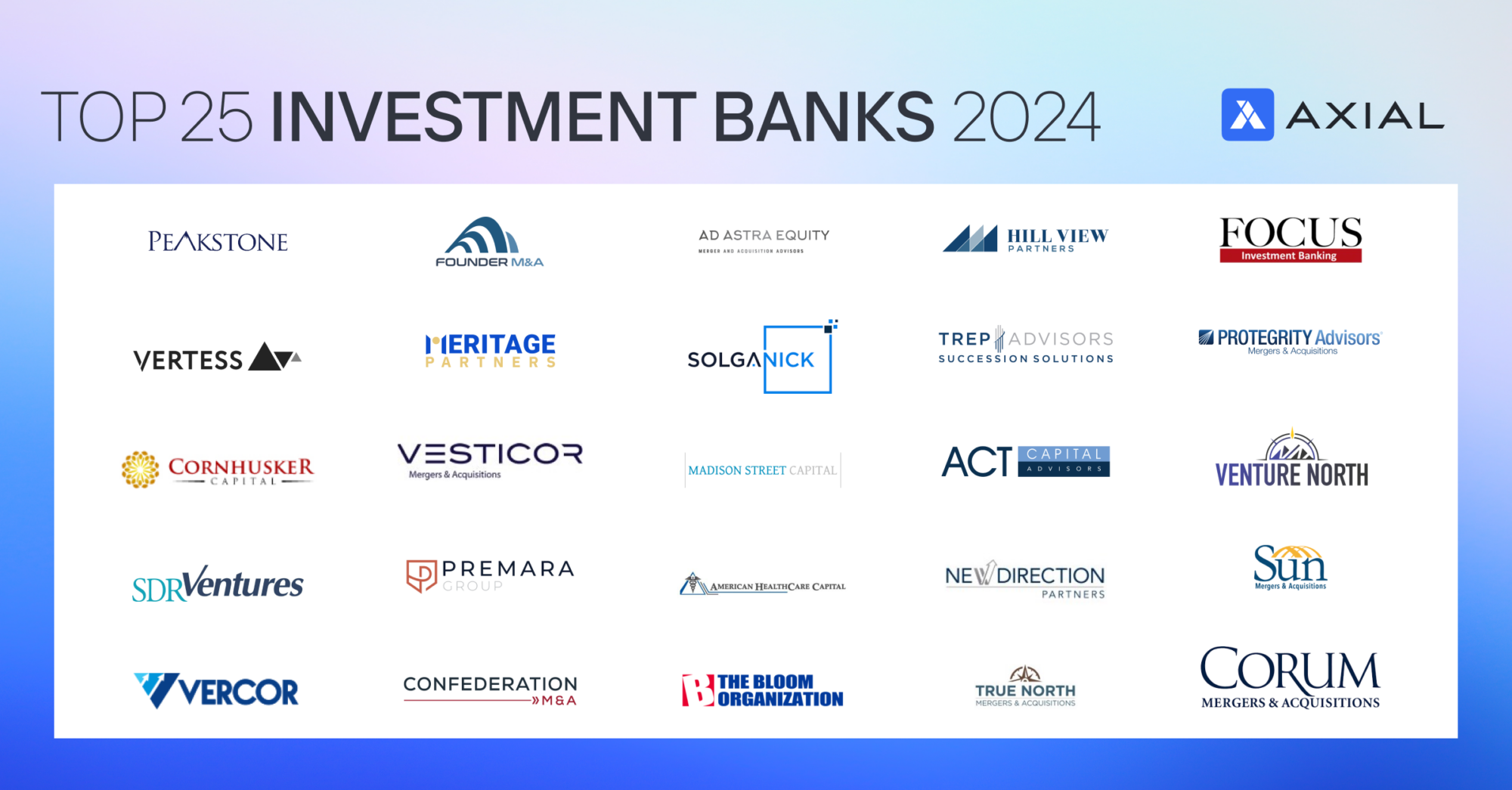
Top 25 Lower Middle Market Investment Banks | 2024
Axial is excited to release our 2024 Lower Middle Market Investment Banking League Tables. To assemble this list, we reviewed…
Tags
A new deal comes along via email while you’re traveling for a management meeting. It looks promising, but it’s not clear whether it’ll be a fit. You make a mental note to take a closer look when you have time.
But then the meeting runs long, and you have to race to catch your flight. Your plane doesn’t have internet access. When you land back home you nab a few hours of sleep. When you get to the office the next morning, a deal in due diligence is falling apart. You spend the rest of the day on the phone with your lawyers.
By the end of the night, that maybe-promising deal from yesterday is nothing more than a distant memory.
—
Staying on top of deals is a particular risk while traveling. There’s jet lag and fatigue and spotty internet access. You’re trying to access your CRM and manage your email inbox from your phone. Meetings eat up what would otherwise be the most productive part of your day. Despite today’s hyper-connected workplace, being on the road still poses unique challenges.
“When we’re traveling, it’s typically to visit a company we’re interested in — and that means at least a half day of face-to-face time meeting with executives and touring the facilities. This doesn’t really allow for time to concentrate on other incoming deals,” said Musa Yenni, founder and president of Yenni Capital.
“When you’re on the road, you have even less time than usual to spend evaluating deals,” says Sage Harrison, principal at Evolve Capital. “The triage is intensified.”
Working on a mobile device while traveling can make it more difficult to manage the deal pipeline. But there are a few easy ways to improve deal management on the road.
1) Don’t expect to handle lots of administrative work while traveling.
“I’m lucky to have a team who is focused on deal origination, so I can forward emails and hand off some of the administrative tasks. This approach allows us to be highly responsive to intermediaries sending us deals – even though I may be less accessible,” said Harrison. “This is really important because things like redlining CAs and tracking down CIMs could really become a bottleneck if you’re on the road for weeks at a time and lack support.”
It’s not just support work specifically related to deals that can be a concern. Changing flights, scheduling and confirming meetings, and data entry are all time-consuming tasks that are more difficult to do from a mobile office. New York-based private equity firm Star Mountain Capital relies largely on a full-time outsourced team in India to handle these tasks. “It took a large investment in training,” says CEO Brett Hickey. “Just like any person you hire, you have to train them, and this person you can’t see. Like technology, it’s a big investment, but if you do it right it’s effective.”
2) Take advantage of calendar reminders.
“You’re never too busy to chase a good deal,” says Armando Soto, managing director of Isaac Capital Group. “It takes twenty seconds to set a quick calendar reminder to follow up with someone. There’s always time. If you’re driving, you can take a call. If you’re in a meeting, you can walk out and take it or set a reminder.”
Scheduling calls can be difficult with an unpredictable travel schedule. Periodic calendar reminders ensure that deals don’t get lost in the shuffle.
“It’s really all about being on someone’s mind,” Soto says. “If I’ve signed an NDA and I haven’t seen an operating memo, I always set a reminder to call that person every few days to make sure I receive the information I’m looking for.
“We look at it as a game of tennis. If the ball’s in our court we’re asking ourselves why it is not in their court, why is it not on their side?”
3) Equip your team with the right hardware.
For maximum productivity, it’s important to have the right tools. At Star Mountain Capital, Hickey says, “everyone has high-quality touch screen laptops, tablets, and large smartphones. We want people to be able to see information easily on the road and edit it. All the little things help when it comes to making the team agile.”
4) Be consistent.
There’s no point in reinventing the wheel for every potential deal response. “We’ve done enough transactions that we have a very standard data request that we send to the banker in our first conversation that explains what we’re looking for and the data we routinely need,” says Neeraj Gupta, managing partner at Base2 Advisors. “We try to be consistent in the way we look at transactions.”
As a result, Gupta says, “We generally prefer to respond to deals via email. I’m happy to talk on the phone with anybody at any time, but after the phone discussion, I’ll send an email that asks for the exact same information every time.”
Having a consistent follow-up makes it easier both to respond quickly in real time (whether in the office or on the road), as well as to compare deals with one another. “Once we get through that information, there’s going to be a lot of handcrafted conversations that happen as deals get deeper in the funnel. But when you’re at the top of the funnel, consistency is your best friend.”
